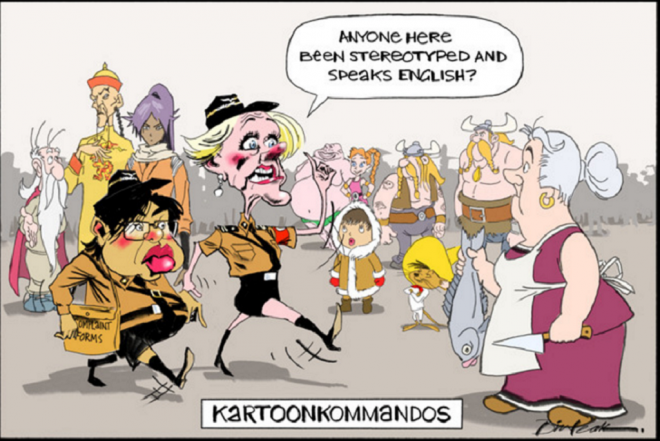How ‘You Can’t Ask That’ Became One Of The Best Shows On Australian TV
"No one's dictating any way you should feel about this."
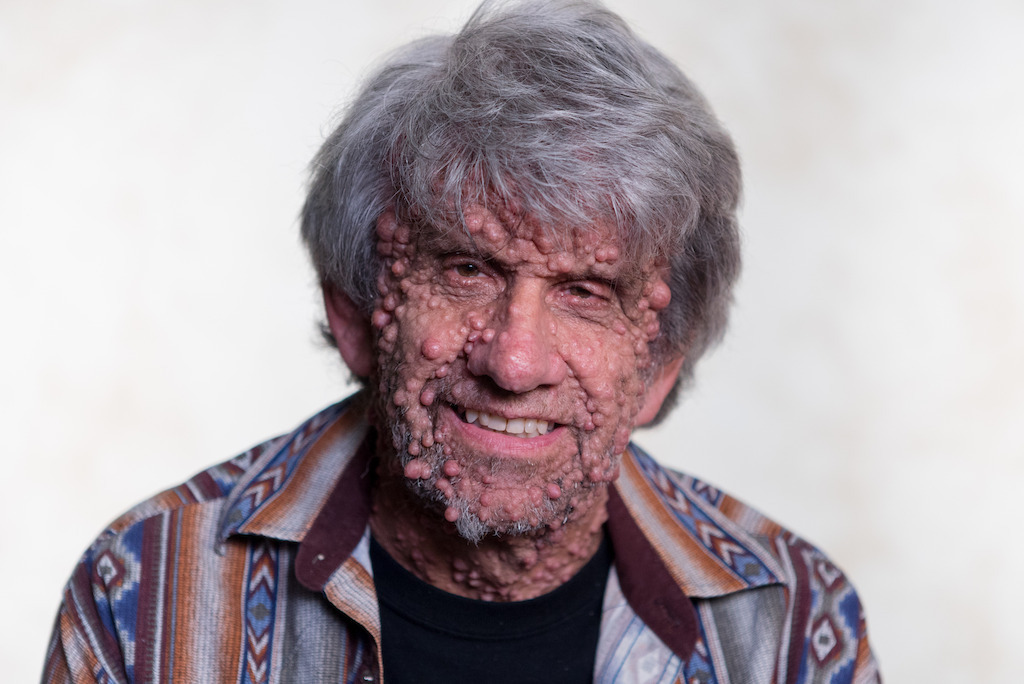
The TV ratings war in Australia has become a clash between reality shows. Who can manufacture the most upsetting situation? Which show has manipulated footage to create the most offensive storyline? But over on the ABC, one show is rivalling the big hitters by inviting people into a studio and having a straight-forward and honest conversation about their lives.
Since its first season last year, You Can’t Ask That has become the station’s most successful format of the past decade. It’s been sold all around the world and has averaged 710,000 viewers per episode. Now it’s back with more episodes, and they’re double the length.
If you haven’t watched before, the show invites people from marginalised or misunderstood groups to answer questions — some well-meaning, some ignorant, some a combination of the two — submitted anonymously by the public. The first season featured episodes with Indigenous Australians, Muslims, people in polyamorous relationships and more. This time around we hear from others including gambling addicts, recent war veterans, people with facial differences, and survivors of suicide attempts.
In a strictly definitional sense, it’s easily the least politically correct show on television. But it may also be the most kind, educational and open-hearted. We talked to one of the series’ creators Kirk Docker (who was also a 2016 Junket delegate) about how this came to be, and how he feels about the series in an era where people are yelling about their right to “offend”.
Junkee: Let’s start at the beginning! How did the whole idea for the show start for you? I’ve heard you say it was inspired by Reddit AMAs before. It’s nice to think something so compassionate can come from Reddit.
Kirk Docker: [Laughs] Yeah, shows like this are a combination of a bunch of things. Aaron Smith and I, who made the show together, used to work on Hungry Beast and do a vox pop segment. We put universal questions to people who don’t necessarily get interviewed all the time — just ordinary Australians. This show was an extension of that. We wanted to take ideas like Reddit AMAs, these vox pops, and apply it to a really specific group of people for questions everyone really wanted to know.
Were the questions on Hungry Beast confronting ones as well or more general?
They were things like “what do you fear?” or “when was the last time you cried?” They were big questions; ones that everyone has an answer to. It was about trying to get past that boring style of vox pops which is all about current events. It’s about your own experience.
Has anything changed for you now, between the first and second seasons? How do you feel about the show now at a time when the country’s debating freedom of speech, 18C, and what’s ‘politically correct’?
There’s always tweaks; we changed things. But the basic idea of asking tough questions, that’s remained. The show’s perfect for now. I think that’s why people like it and watch it. It’s amazing how many people you’ll bump into who will say ‘oh my god, I love that show’.
This season we’re doing an episode on refugees, for example, and I think this is the perfect time for something on that. Even though refugees have been an issue for Australia for a long time, it feels like doing this in our way is a really nice thing for right now. A lot of our topics aren’t new topics: ice use is not a new topic, refugees are not a new topic. But, done in a new way, it gives it a fresh take.
No one’s dictating any way you should feel about this.
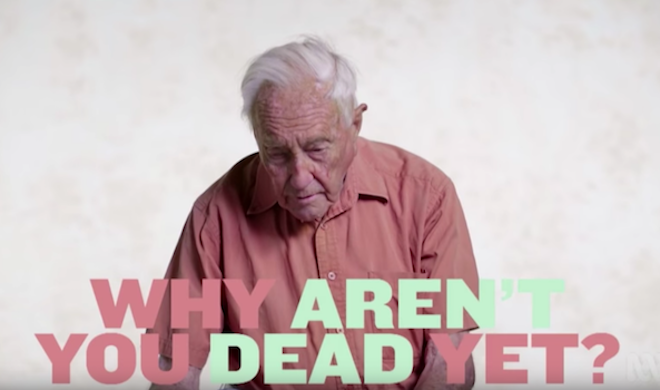
You talk about this strong positive reception; has there been anything negative? Were you worried at the start that it would going to be seen in the wrong way? I know when I saw the first promo material it seemed a bit deliberately controversial.
Last year it was really hard to get people to do the show [laughs]. I mean, we were doing a show called You Can’t Ask That, asking people to answer the hardest questions that they’re going to be asked. I think once — this year in particular — everyone saw the care in which it was put together, people realised we’re not out to trick anyone. We’re not out to make people say something they don’t want to say. We genuinely want to hear what people think. We want people to look at these issues and go ‘right, this is complex’.
It’s full of hope and humour and heartbreak.
For us, we’re not just showing one side or the other or saying anything is right or wrong. There are just eight people [per episode] talking from their own perspective. Sometimes they agree. Sometimes they don’t agree. These things are not just about having one answer for things. There’s no one way we should think about homeless people, or how we should think about children with same-sex parents.
Have you ever felt weird about asking these questions — as someone who doesn’t necessarily belong to these groups? The whole premise is questions that make people feel uncomfortable or aren’t usual topics covered. Does it feel uncomfortable?
When you look at the list of questions, yes. Last year when we did the fat topic I just went ‘man, I can’t believe we’re going to be asking these, they’re so gnarly’. You do feel apprehensive. In that way, it’s nice the initial questions are on the cards. But what you find out very quickly is, all these people in all these groups have faced these questions endless times. Every day they’ve experienced judgments… when you speak to people you say, ‘these aren’t going to be questions you haven’t heard before’. Every now and then someone will say ‘oh I was waiting for this one!’
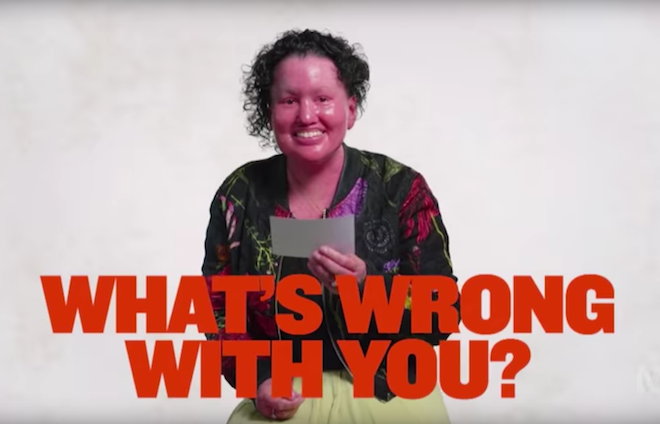
It can be funny for them too; it allows them to have fun with it, be angry at the stereotype, whatever it is. People get pretty excited about turning over the cards. Once you see how ridiculous some of them are or how uneducated or how little people know about certain topics, I think everyone has fun with it. I was hesitant originally, but once you realise this is something these guys see all the time, it just becomes the most fascinating conversation.
What do you think your favourite episode or moment has been, when you’ve had this experience?
There’s a fantastic question — and this is not a negative question — in the Down Syndrome episode — which is “why do you love happiness and hugs?” I got to sit through eight people with Down Syndrome talking about how important happiness and hugs are to them. It was awesome.
I saw that one in the previews, it’s good. I love how it’s somewhat of a critical question, but then they’re just like ‘hugs are the best, why wouldn’t you love hugs?’
I know! [Laughs] It’s just such a nice thing to be a part of — especially when you see the uncut versions when they’re talking at length about it. It’s bloody beautiful. That was a really, really nice one for me.
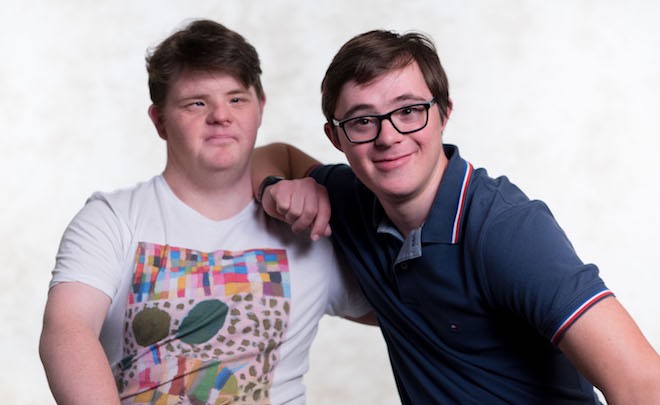
I suppose, on the other side of that, having Chris — one of the young guys in the suicide episode — talk about the damage he has done to himself from the experience of suicide was an incredible thing to be a part of. It’s not a topic that many people generally want to cover, yet it’s full of hope and humour and heartbreak… There are a lot of takes on topics this season that you don’t really get to see.
Are there any topics or groups that you’ve been wanting to take on, but it hasn’t worked out yet? Anything you’re still chasing?
I mean, there are so many good groups… I would love to do one at some point on people who have been abducted by aliens. That would be fun. But, at this point, we haven’t really gone ‘whacky’. And it can also be a problem of having access to people.
I imagine it would be pretty hard to go down that road as well. If you did to people who think they’ve been abducted, it could be hard to toe that line of understanding them and not making fun of them. They’re still somewhat novel.
Yeah. The other thing we’ve found is you have to go for people who have experiences. The nature of the show is that you have to rely on people’s personal experiences, so you have to steer away from politics or things which are about beliefs. It’s harder for us to cover because someone could say something that’s factually incorrect and we would have to counter that on the show. We need people talking about true statements from experiences in their lives.
Definitely. What kind of groups were you thinking of for those kind of topics?
Back when we were researching, a big one was people who voted for One Nation. It’s not that we didn’t think that episode would be valid, we just thought it would be too hard to touch on those topics with people just speaking from their personal experience.
Is there anything else you’d like people to know about the show?
I think, whenever we talk about all this stuff, it’s always in the negatives — but there are so many positives too! It’s a lot of fun. People bring a lot of warmth and humour and compassion to their answers, and I think that is one of the best takeaways from this show.
Despite how some people are treated, or what they’ve experienced, they bring humour to it all. People enjoy having the experience to talk and tell their story from start to end.
–
You Can’t Ask That is on ABC at 9pm Wednesdays. It’s also available to stream on iview now.
–
Meg Watson is the editor of Junkee. She tweets at @msmegwatson.
